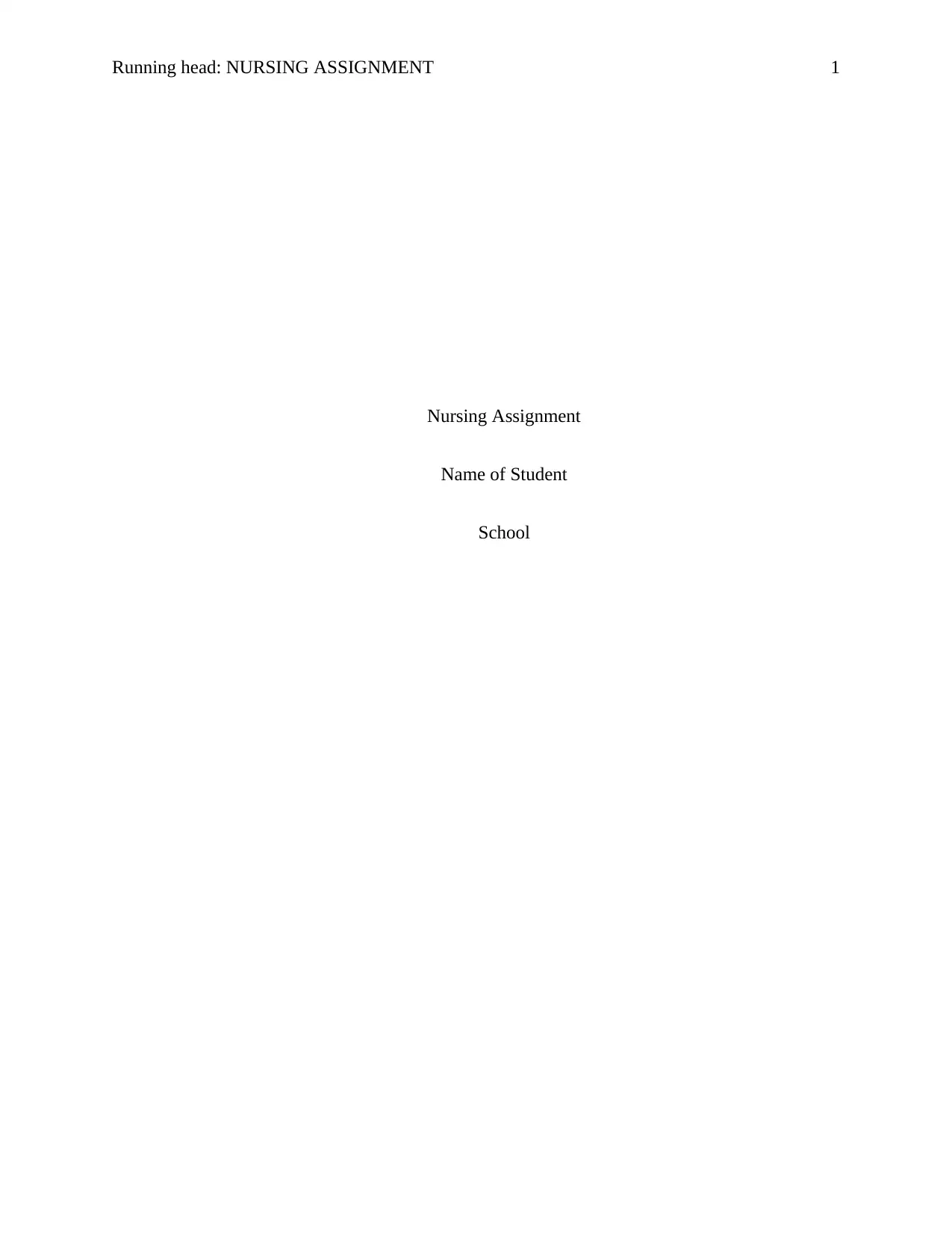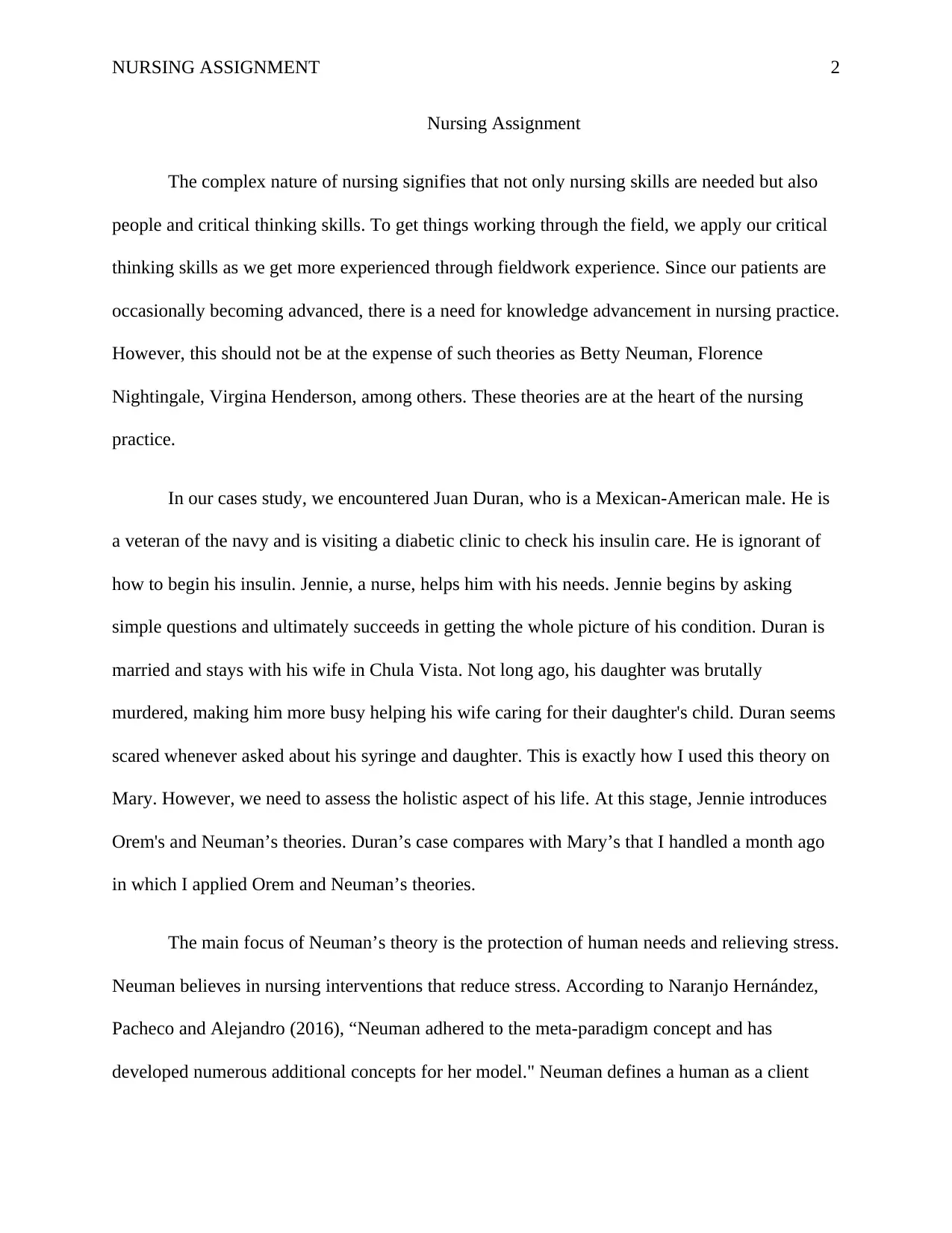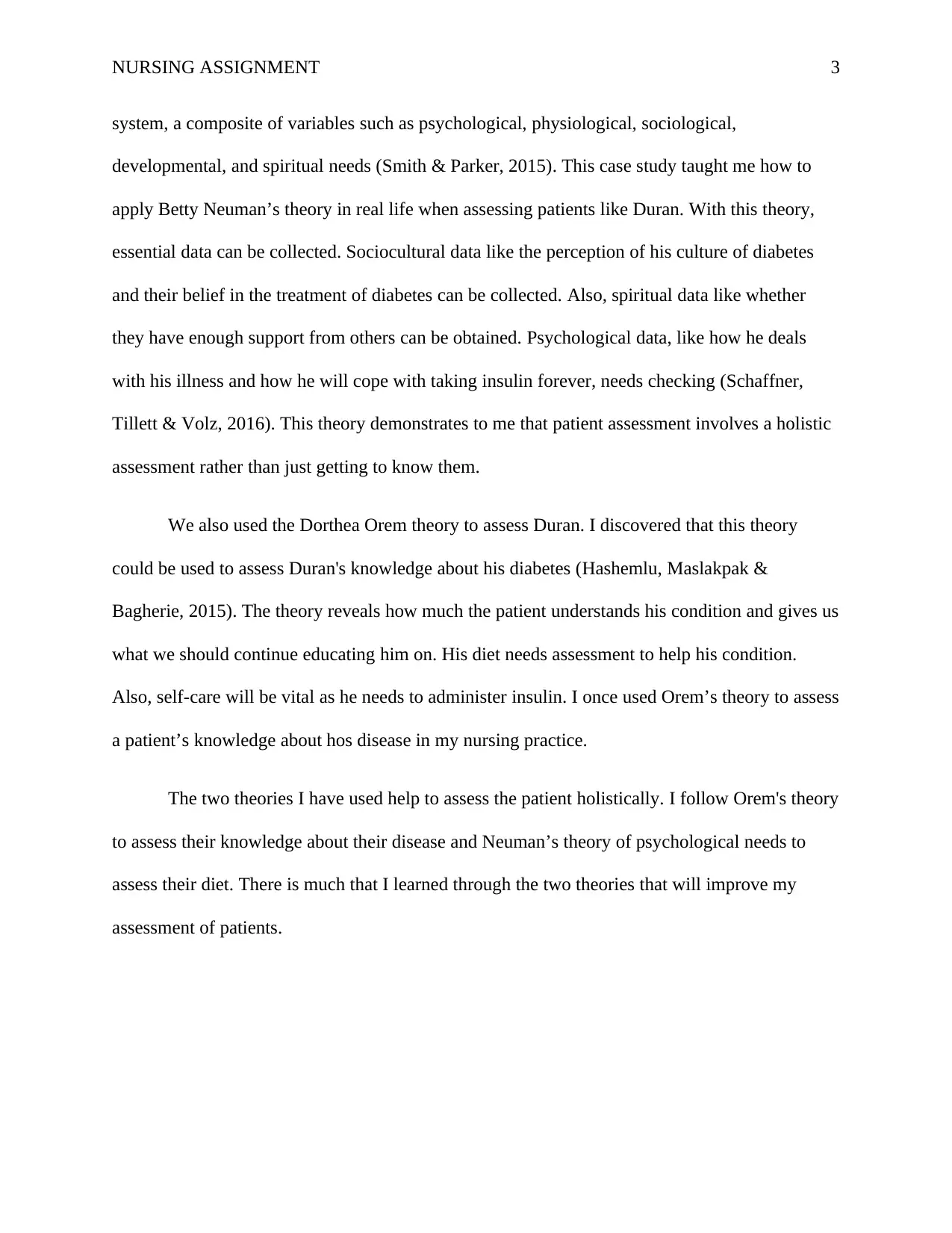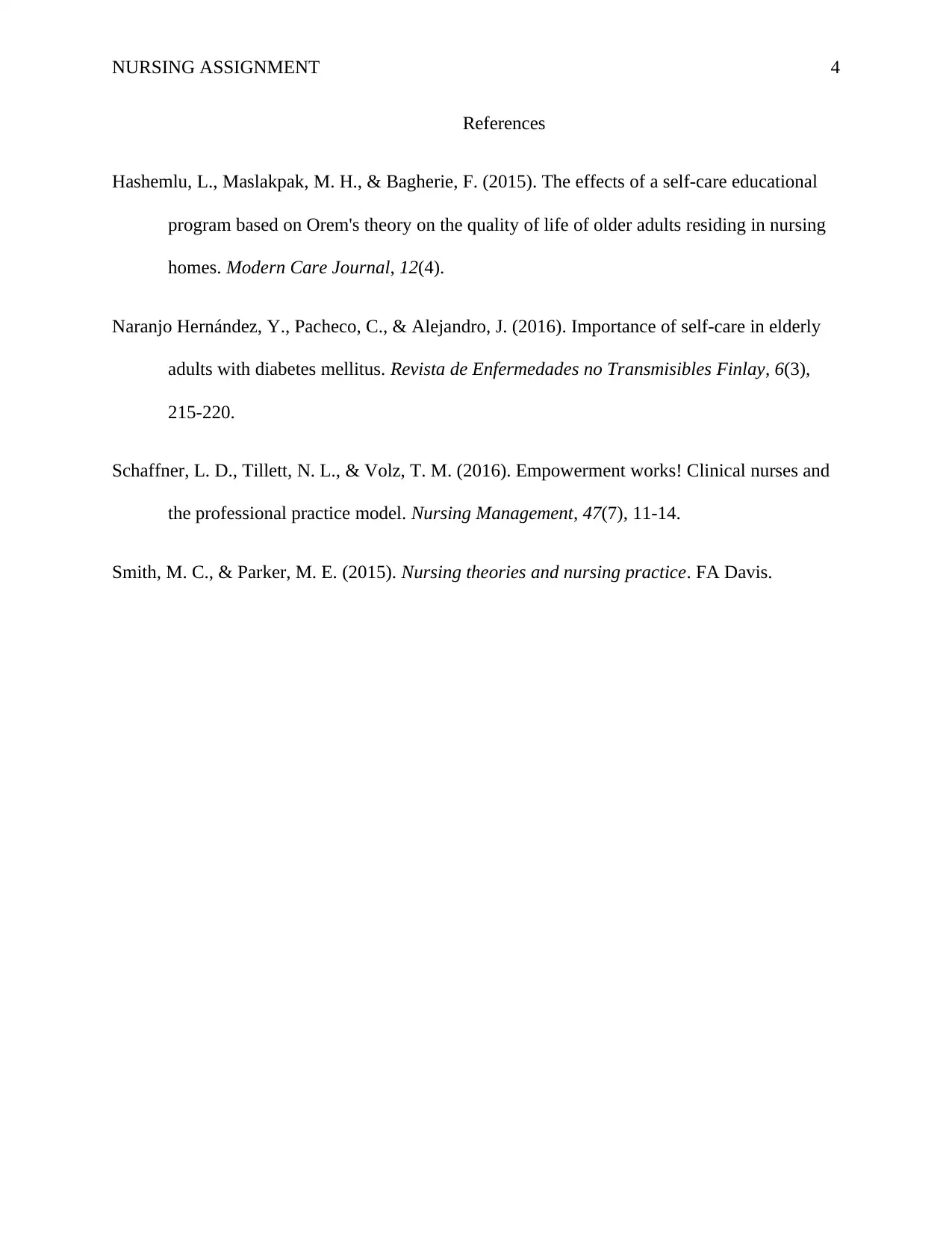Nursing Assignment: Analyzing Juan Duran's Needs in Diabetes Care
VerifiedAdded on 2022/11/03
|4
|829
|269
Case Study
AI Summary
This nursing assignment presents a case study of Juan Duran, a Mexican-American veteran visiting a diabetes clinic. The assignment analyzes his situation, highlighting the application of nursing theories, specifically Betty Neuman's and Dorthea Orem's theories, to assess his needs and provide appropriate care. The student explores the importance of holistic assessment, considering sociocultural, spiritual, and psychological factors. The case study details the nurse's interactions with Duran, emphasizing the need for patient education, self-care management, and the integration of theoretical frameworks into practical nursing interventions. The student reflects on how these theories guide patient assessment and enhance the quality of care, drawing parallels to personal experiences in their nursing practice. The assignment also considers the patient's emotional state, given the recent loss of his daughter, and how this impacts his ability to manage his diabetes. The student emphasizes the importance of understanding the patient's knowledge about their disease and how this understanding can be improved through education and support.
1 out of 4











![[object Object]](/_next/static/media/star-bottom.7253800d.svg)